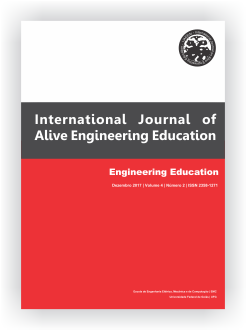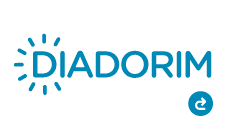How to Increase and Retain Interest in Power Quality Lectures
DOI :
https://doi.org/10.5216/ijaeedu.v4i2.48140Mots-clés :
laboratory activities, pedagogical tools, power quality, teaching in engineering, teaching methodologyRésumé
This article discusses about Power Quality (PQ) as a teaching subject and addresses the methodology employed in the theoretical/expositive PQ lectures for undergraduate students held at the Laboratory of Analysis of Power Quality Monitoring – LAMQEE, located at São Carlos School of Engineering (EESC), University of São Paulo (USP). It will be covering challenges handled, positive aspects and new learning opportunities based at adopted methodology. Theoretical classes were supported by new tools of pedagogical aid to develop learning skills. Examples of tools that could be mentioned are real time computer simulations projected in multi-media equipment, discussions of technical-scientific articles, as well as the use of a Digital Arbitrary Signal Generator combined with a PQ analyzer. With the aim of increase and retain the enrolled students’ interest, practical exercises were added to the course and provided with performance comments concluded activities. This methodology was implemented with the vital cooperation of a student of the Program of Education Improvement (PAE) supported by USP. The PQ classes supervised in association of a PAE scholarship support in teaching activities, promoted better interest and involvement of students during the lectures. Additionally, it improves the teaching atmosphere quality, satisfy and lectures content. Students’ self-confidence on the subject PQ concepts and developed performs was verified and the enhanced number of final course papers in topics correlated to PQ. Despite challenges and upgrades that should be applied, the effects observed so far show that many of the pedagogical instruments, when correctly applied, are capable of enhance the study and attention of significant topics associated to PQ. Likewise, the instruments also encourage and inspire students to learn PQ subjects key and initiate them to the academic research atmosphere and upcoming professional activities. Finally, other activities are still on the list of actions for future work, for example, it would be recommended to have a feedback mechanism of the students, validating all the methodology adopted, strengths and weaknesses of the material developed, the presentation of the lesson and the attendance after the lecture.
Références
ONS, "Resumo da Operação em 2015," ONS, 2015. [Online]. Available: http://www.ons.com.br/conheca_sistema/resumo_operacao.aspx. [Accessed 18 01 2017].
USP, "O que é PAE," PRPG, [Online]. Available: http://www.prpg.usp.br/index.php/pt-br/pae/o-que-pae. [Accessed 18 01 2017].
(ITI), Information Technology Industry Council, "ITI (CBEMA) Curve Application Note," Washington, 2000.
MATLAB, version 8.5 (R2015a), Natick, Massachusetts: The MathWorks Inc., 2015.
MAPLE, version 18, Toronto, Ontario: Waterloo Maple Inc., 2016.
Mathematica, Version 10, Champaign, Illinois: Wolfram Research, Inc., 2016.
J. W. Eaton, GNU Octave Manual, Boston, MA: Network Theory Limited, 2002.
Scilab: Free and Open Source software, Scilab: Free and Open Source software, Orsay, France: Scilab Enterprises, 2016.
MATLAB, "MATLAB Student," 01 12 2016. [Online]. Available: https://www.mathworks.com/academia/student_version.html. [Accessed 01 12 2016].
IEC, IEC 61000-4-7 - Electromagnetic compatibility (EMC) - Part 4-7: Testing and measurement techniques - General guide on harmonics and interharmonics measurements and instrumentation, for power supply systems and equipment connected thereto, International Electrotechnical Commission, 2002.
ANEEL, "PRODIST Modulo 8," ANEEL, 27 01 2016. [Online]. Available: http://www.aneel.gov.br/modulo-8. [Accessed 20 01 2017].
Téléchargements
Publié-e
Numéro
Rubrique
Licence
Copyright
The author is responsible for the following statements by submitting an article electronically in the International Journal of Alive Engineering Education (IJAEEdu):
a) States that the document in question was reviewed by an expert in English language and it is an original work and it holds the prerogative to grant the rights contained in this license. It also states that the document does not infringe, as far as it is possible to know the rights of any other person or entity.
b) If the document in question contains material which does not hold the copyright, the author states have obtained the copyright holder’s permission to grant the Universidade Federal de Goiás (UFG) the rights required by this license, and that such material whose rights are third is clearly identified and acknowledged within the text or content of the document.
c) States that the study was conducted in accordance with the ethical standards of all applicable institutional, local, national and international guidelines.
d) It also states that any person appointed as author or co-author of the document is aware of it and agrees to be so appointed.
Authorization Form
As responsible for the submission of the document, I authorize the School of Electrical, Mechanical and Computer Engineering of the Federal University of Goiás to provide the paper free of charge, through the Electronic System for Publishing Magazines UFG (SEER / UFG) or in printed form, without compensation of copyright, in accordance with Law No. 9610/98. Is allowed, reading, printing and / or download, as a promotion of the Brazilian scientific production. Any use of the work not authorized under this license or the copyright law is prohibited.



